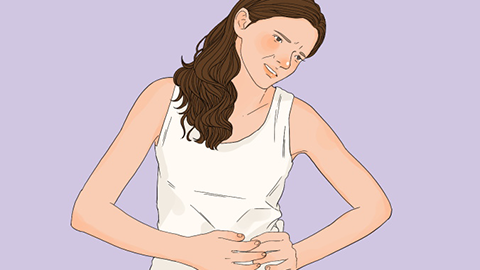How to treat chronic pelvic inflammatory disease
Generally, chronic pelvic inflammatory disease may be caused by factors such as improper sexual practices, decreased immunity, bacterial vaginosis, chlamydia infection, and endometriosis. The treatment method needs to be selected according to the specific cause to achieve therapeutic effectiveness. Prompt medical consultation and following medical advice for treatment are necessary. Details are as follows:

1. Improper sexual activity: Early sexual activity, multiple sexual partners, overly frequent intercourse, or a sexual partner with sexually transmitted diseases can easily cause chronic pelvic inflammatory disease. It is necessary to improve sexual habits, maintain personal hygiene, and avoid unclean sexual behaviors.
2. Decreased immunity: When the body's natural defense mechanisms are compromised or immune function declines—such as from prolonged fatigue, malnutrition, or staying up late—chronic pelvic inflammatory disease may be triggered. It is important to enhance immunity, ensure adequate rest and sleep, and avoid excessive fatigue.
3. Bacterial vaginosis: Bacterial vaginosis is caused by vaginal flora imbalance, with common pathogens including Gardnerella and anaerobic bacteria. These pathogens can multiply in the vagina and ascend to infect the pelvic cavity, causing chronic pelvic inflammatory disease, often accompanied by vulvar itching. Follow medical advice to use antimicrobial and anti-infective medications such as tinidazole tablets, metronidazole suppositories, and clindamycin hydrochloride capsules.
4. Chlamydia trachomatis infection: Chlamydia trachomatis is a sexually transmitted pathogen that can spread through sexual contact to the pelvic cavity, causing chronic pelvic inflammatory disease. Chlamydia infection may develop into chronic pelvic inflammation without a history of acute pelvic inflammatory disease, manifesting as lower abdominal pain. Under medical guidance, use anti-infective medications such as doxycycline hyclate tablets, amoxicillin capsules, and azithromycin capsules.
5. Endometriosis: Endometriosis refers to endometrial tissue growing outside the uterine cavity. Under the influence of sex hormones, displaced endometrial tissue may undergo periodic bleeding and inflammatory reactions, causing chronic pelvic inflammatory disease manifested as dysmenorrhea. Follow medical advice to use medications such as medroxyprogesterone acetate tablets, norethisterone tablets, and ibuprofen sustained-release capsules to supplement progesterone, relieve pain, and reduce inflammation.
Maintaining good lifestyle habits and a positive mindset in daily life can help in disease recovery and prevent recurrence.





